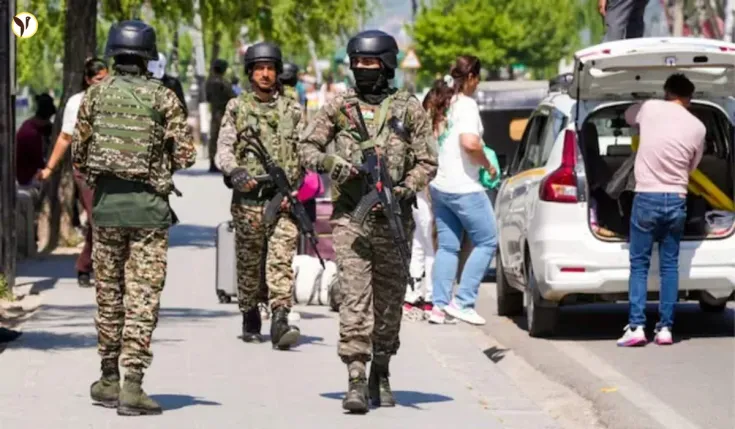Nationwide Mock Drill: India Prepares for Emergencies
Amidst rising tensions between India and Pakistan following a deadly terror attack in Pahalgam, India is gearing up for a nationwide civil defence mock drill on May 7th. This isn't just a drill; it's a crucial exercise designed to test the nation's preparedness for various emergency scenarios, a response to heightened security concerns.
A Nation on Alert: Understanding the Mock Drill
The upcoming mock drill, ordered by the Ministry of Home Affairs (MHA), will involve a comprehensive assessment of India's civil defence capabilities. The exercise, taking place across 244 districts in nine states and union territories, aims to identify and address any weaknesses in the system. This includes evaluating the effectiveness of emergency response mechanisms and public awareness programs.
What will the drill entail? Expect to see a range of activities, including:
- Air raid sirens: Testing the public alert system and citizens' response to warnings.
- Crash blackouts: Simulating power outages to assess preparedness for disruption.
- Camouflage exercises: Practicing concealment techniques for vital infrastructure.
- Evacuation drills: Testing the efficiency of evacuation plans from high-risk zones.
- Civilian training: Educating the public on emergency procedures, first aid, and safety measures.
The drill's scale is significant. The last similar exercise of this magnitude was conducted in 1971, before the India-Pakistan war. This time, the focus is on bolstering national resilience in the face of potential threats.
Why now? The recent Pahalgam terror attack, which claimed 26 lives, has understandably heightened security concerns. The increased cross-border firing incidents along the Line of Control (LoC) further underscore the need for preparedness. The UN Security Council has also weighed in, urging dialogue between India and Pakistan to de-escalate the situation.
City-level preparations: Various cities across India are actively preparing. Delhi's education minister, for example, has publicly expressed support and readiness. Other cities like Lucknow, Srinagar, and Chandigarh are conducting pre-drill exercises and coordinating with local authorities to ensure smooth operations.
Beyond the Drill: A Look at Preparedness
The mock drill is not merely a one-off event. It signifies a renewed focus on civil defence preparedness in India. The government has emphasized the importance of training civilians and enhancing emergency response mechanisms. This includes improving communication systems, stocking essential supplies, and refining evacuation strategies.
The exercises planned for May 7th are intended to be a learning experience for both citizens and authorities, providing valuable feedback for future improvements. The ultimate goal is to create a more robust and resilient nation capable of handling various emergency situations effectively.
Conclusion: A Necessary Step Towards Security
The nationwide mock drill on May 7th is a vital step in enhancing India's preparedness for potential emergencies. While the drill is designed to test the nation's response systems, it’s also about reassuring the public that measures are in place to handle various threats. This exercise is a testament to India's commitment to ensuring the safety and security of its citizens.
The heightened tensions with Pakistan underscore the importance of such drills. By proactively preparing for potential crises, India aims to mitigate risks and safeguard its population. It's a significant undertaking, and the outcome of this exercise will be crucial in shaping future national security strategies.






